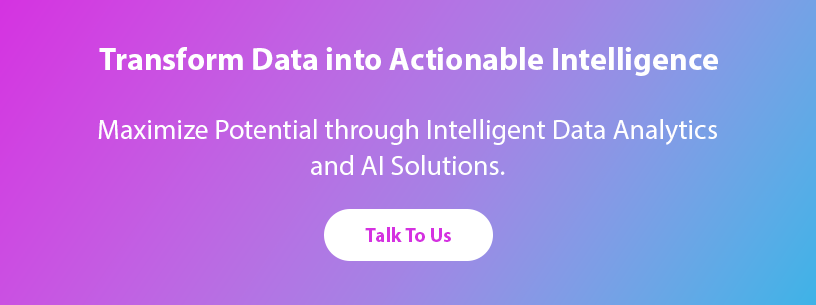Retail and eCommerce today
The retail and eCommerce industry is a $2 trillion global market. It’s also one of the most dynamic, with new products and services constantly being introduced. But despite its size and growth potential, there are several challenges facing this sector:
- The number of online shoppers continues to grow rapidly as more people shop from their smartphones or laptops instead of visiting physical stores.
- Many retailers have been slow to adapt their business models for this new era in which consumers expect instant gratification when shopping online–and they’re losing out as a result!
What is generative AI and why the hype?
What is generative AI?
Generative AI is a new technology that can create and improve upon itself. This means that it doesn’t need humans to tell it what to do, or even how to do it. It’s like a self-learning system that can teach itself how to become better at whatever task you give it–and then share its findings with other systems so they can learn too!
Generative AI (GA) is a type of artificial intelligence that can create new ideas, models and products autonomously. GA can be used in many different industries, but it’s especially useful for retail and e-commerce because it allows companies to create personalized experiences for their customers. This means that instead of having one-size-fits-all products or services, GA allows businesses to develop products based on what their customers actually want–and not just what they think they want.
This technology is already being used by companies like Google and Facebook as well as smaller startups like MetaMind (acquired by Salesforce) and Clarifai (acquired by Apple). In fact, some experts predict that generative AI could have an impact on digital commerce and retail similar in scale as mobile apps did back in 2008 when they first became popular among consumers.
What are the benefits of generative AI?
There are several benefits associated with using generative technologies like GANs (Generative Adversarial Networks), VAEs (Variational Autoencoders) and much more.
Generative AI is a type of artificial intelligence (AI) that learns from data and creates new things. It’s different from traditional machine learning because it doesn’t just learn from the past, but also predicts what might happen in the future.
Generative AI can be used to make predictions about everything from weather patterns to stock market trends, which can help companies make better decisions about their business strategies. In this article, let us explore how generative AI will disrupt retail and e-commerce industries by changing how consumers shop online or offline–and why it’s important for retailers to stay ahead of the curve!
Impact of generative AI on retail and eCommerce
Generative AI has the potential to create a retail and ecommerce ecosystem that is more efficient, personalized, and customer-centric.
It can help retailers provide a better shopping experience by providing real-time recommendations based on customer preferences.
Product recommendation
Generative AI can help you recommend products to your customers based on their purchase history, browsing behavior and other data points.
For example, if a customer has bought a pair of shoes from you in the past, then it may be useful for them to see similar items when they visit your website again. This will increase your conversion rate as well as improve user experience by making sure that the right products are being shown at all times.
Personalization
Personalization is another area where generative AI can play an important role in the digital commerce and retail industry. By using machine learning algorithms on large amounts of data about each individual customer (such as their name, address etc.), retailers can offer more personalized experiences such as targeted marketing campaigns or custom recommendations based on what each person likes most about their shopping experience with them so far!
For example, if you have been looking at shoes on Amazon or Walmart and then switch over to another category like electronics or home appliances, the site will be able to recommend other items based on what you were previously browsing. This will save time for both customers and retailers because they won’t have to search through pages of irrelevant products anymore!
Inventory management & supply chain
Over the past few years, retail has been plagued with supply chain issues, firstly the pandemic that led to border closures and transportation disruptions, secondly massive delivery delays that resulted in empty shelves and, more recently, over-ordering of the wrong product. products to excess and dead inventory.
Generative AI can be used to analyze sales data and make predictive suggestions for inventory management. AI can also help retailers predict trends by analyzing historical data, consumer sentiment and competitive data to predict trends and make informed ordering and production decisions, helping to optimize supply chain and delivery.
Visual product presentation
Brands can create AI-generated product photos or virtual fashion models to showcase products online.
Using generative AI to transform text or 2D images into 3D objects allows retailers to offer interactive 3D product catalogs.
Fashion designers can perfect new clothing designs with tools that use generative artificial intelligence to turn 2D sketches into digital modeling.
Product marketing
The digital shelf is an endless aisle that needs more than just good products or established brands. Ranking on the digital shelf requires optimized product description pages (PDPs) that provide buyers with accurate product information, high-resolution images and SEO keywords to help them rank.
Generative AI can be used to quickly create, optimize and improve product pages and copy without human intervention. It can be used to improve the ranking of product listings, add SEO keywords to help rank in the SERPs, create and optimize images for PDP and curate product descriptions for buyers.
Product pricing
Fear of inflation and recession increased the price sensitivity of buyers. According to a recent Intelligence Node study, 95% of shoppers track and compare prices of similar products online when shopping in-store. This trend shows how consumers always look for the best prices before making a purchase decision.
Brands and retailers need to stay on top of their pricing, monitor competitor price changes and make competitor pricing decisions in real-time to avoid losing shoppers to competitors. Generative AI can assist retailers in quickly optimizing prices by analyzing competitor prices, demand patterns and market trends.
Chatbots
Chatbots are the most widely used technology in customer service. They are used to answer basic questions, provide information and help users complete simple tasks. Chatbots can be used as a first line of defense against low-value queries so that human agents can focus on more complex issues.
Automated support tickets
Automated Support Tickets are another way to use Generative AI for customer experience and support purposes. Automated tickets are generated when an exception occurs during a conversation with a user or during an automated process such as payment processing or account creation etc., which requires further investigation by human agents before being resolved. These tickets are then routed to appropriate agents based on their skillset and knowledge base required for resolving them successfully (e.g., if you have an issue with your credit card payment, then only those agents who have expertise in this area will receive this ticket).
Spamming and phishing
Generative AI algorithms can detect and prevent fraudulent activities such as fraudulent purchases or returns, saving retailers money and increasing customer trust. It can also use multiple algorithms to identify counterfeit products and unauthorized sellers in the marketplace, helping brands protect their brand identity and margins.
Conclusion
With new discoveries and possibilities being build around Generative AI every day, the future of this technology in Retail and eCommerce is very promising. Being early adopters to the technology would only mean leading the race from the front.
For a better understanding of how generative AI will disrupt the retail and eCommerce Industry, get in touch with our experts. Stay ahead of the competition with leading technology providers like Cygnet Digital.











